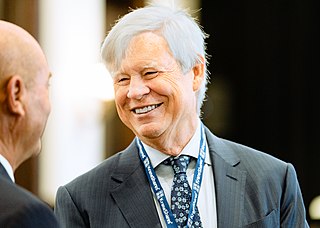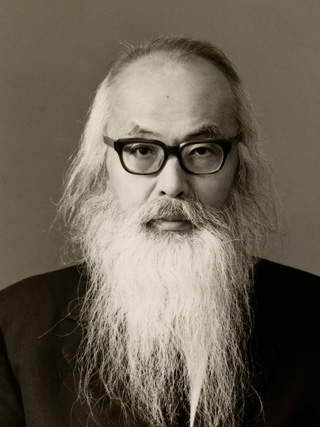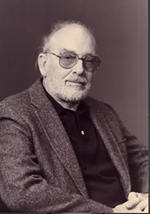Related Research Articles
Pareto efficiency or Pareto optimality is a situation where no action or allocation is available that makes one individual better off without making another worse off. The concept is named after Vilfredo Pareto (1848–1923), Italian civil engineer and economist, who used the concept in his studies of economic efficiency and income distribution. The following three concepts are closely related:
In economics, general equilibrium theory attempts to explain the behavior of supply, demand, and prices in a whole economy with several or many interacting markets, by seeking to prove that the interaction of demand and supply will result in an overall general equilibrium. General equilibrium theory contrasts with the theory of partial equilibrium, which analyzes a specific part of an economy while its other factors are held constant. In general equilibrium, constant influences are considered to be noneconomic, or in other words, considered to be beyond the scope of economic analysis. The noneconomic influences may change given changes in the economic factors however, and therefore the prediction accuracy of an equilibrium model may depend on the independence of the economic factors from noneconomic ones.

Kenneth Joseph Arrow was an American economist, mathematician, writer, and political theorist. Along with John Hicks, he won the Nobel Memorial Prize in Economic Sciences in 1972.

Joseph Eugene Stiglitz is an American New Keynesian economist, a public policy analyst, and a full professor at Columbia University. He is a recipient of the Nobel Memorial Prize in Economic Sciences (2001) and the John Bates Clark Medal (1979). He is a former senior vice president and chief economist of the World Bank. He is also a former member and chairman of the Council of Economic Advisers. He is known for his support for the Georgist public finance theory and for his critical view of the management of globalization, of laissez-faire economists, and of international institutions such as the International Monetary Fund and the World Bank.

Robert Fry Engle III is an American economist and statistician. He won the 2003 Nobel Memorial Prize in Economic Sciences, sharing the award with Clive Granger, "for methods of analyzing economic time series with time-varying volatility (ARCH)".

John Brian Taylor is the Mary and Robert Raymond Professor of Economics at Stanford University, and the George P. Shultz Senior Fellow in Economics at Stanford University's Hoover Institution.

Hirofumi Uzawa was a Japanese economist.
Sanford "Sandy" Jay Grossman is an American economist and hedge fund manager specializing in quantitative finance. Grossman’s research has spanned the analysis of information in securities markets, corporate structure, property rights, and optimal dynamic risk management. He has published widely in leading economic and business journals, including American Economic Review, Journal of Econometrics, Econometrica, and Journal of Finance. His research in macroeconomics, finance, and risk management has earned numerous awards. Grossman is currently Chairman and CEO of QFS Asset Management, an affiliate of which he founded in 1988. QFS Asset Management shut down its sole remaining hedge fund in January 2014.

David Cass was a professor of economics at the University of Pennsylvania, mostly known for his contributions to general equilibrium theory. His most famous work was on the Ramsey–Cass–Koopmans model of economic growth.
The Lange model is a neoclassical economic model for a hypothetical socialist economy based on public ownership of the means of production and a trial-and-error approach to determining output targets and achieving economic equilibrium and Pareto efficiency. In this model, the state owns non-labor factors of production, and markets allocate final goods and consumer goods. The Lange model states that if all production is performed by a public body such as the state, and there is a functioning price mechanism, this economy will be Pareto-efficient, like a hypothetical market economy under perfect competition. Unlike models of capitalism, the Lange model is based on direct allocation, by directing enterprise managers to set price equal to marginal cost in order to achieve Pareto efficiency. By contrast, in a capitalist economy, private owners seek to maximize profits, while competitive pressures are relied on to indirectly lower the price, this discourages production with high marginal cost and encourages economies of scale.
John Halstead Hardman Moore CBE FBA FRSE is an economic theorist. He was appointed George Watson's and Daniel Stewart's Chair of Political Economy at the University of Edinburgh School of Economics in 2000. In 2018 he was appointed the David Hume University Professor at the University of Edinburgh. Previously, in 1983, he was appointed to the London School of Economics, where in 1990 he became Professor of Economic Theory, a position he still holds.
The Review of Economic Studies is a quarterly peer-reviewed academic journal covering economics. It was established in 1933 by a group of economists based in Britain and the United States. The original editorial team consisted of Abba P. Lerner, Paul Sweezy, and Ursula Kathleen Hicks. It is published by Oxford University Press. The journal is widely considered one of the top 5 journals in economics. It is managed by the editorial board currently chaired by Nicola Fuchs-Schündeln. The current joint managing editors are Thomas Chaney, Andrea Galeotti, Nicola Gennaioli, Veronica Guerrieri, Kurt Mitman, Francesca Molinari, Uta Schönberg, and Adam Szeidl. According to the Journal Citation Reports, the journal has a 2020 impact factor of 6.345.
Marc Leon Nerlove is an American agricultural economist and econometrician and a distinguished university professor emeritus in agricultural and resource economics at the University of Maryland. He was awarded the John Bates Clark Medal from the American Economic Association (AEA) in 1969 and held appointments at eight different universities from 1958–2016. The Clark Medal is awarded to an economist under the age of 40 who “is judged to have made the most significant contribution to economic thought and knowledge”, and when the AEA appointed him as a distinguished fellow in 2012, they cited his development of widely used econometric methods across a range of subjects, including supply and demand, time series analysis, production functions, panel analysis, and family demography.
Jacques H. Drèze was a Belgian economist noted for his contributions to economic theory, econometrics, and economic policy as well as for his leadership in the economics profession. Drèze was the first President of the European Economic Association in 1986 and was the President of the Econometric Society in 1970.
John Denis Sargan, FBA was a British econometrician who specialized in the analysis of economic time-series.
Roger Guesnerie is an economist born in France in 1943. He is currently the Chaired Professor of Economic Theory and Social Organization of the Collège de France, Director of Studies at the École des hautes études en sciences sociales, and the chairman of the board of directors of the Paris School of Economics.

Andreu Mas-Colell is an economist, an expert in microeconomics and a prominent mathematical economist. He is the founder of the Barcelona Graduate School of Economics and a professor in the department of economics at Pompeu Fabra University in Barcelona, Catalonia, Spain. He has also served several times in the cabinet of the Catalan government. Summarizing his and others' research in general equilibrium theory, his monograph gave a thorough exposition of research using differential topology. His textbook on microeconomics, co-authored with Michael Whinston and Jerry Green, is the most used graduate microeconomics textbook in the world.
Robert Stephen Pindyck is an American economist, Bank of Tokyo-Mitsubishi Professor of Economics and Finance at Sloan School of Management at Massachusetts Institute of Technology. He is also a research associate with the National Bureau of Economic Research and a Fellow of the Econometric Society. He has also been a Visiting Professor at Tel-Aviv University, Harvard University, and Columbia University.

Kevin W. S. Roberts was the Sir John Hicks Professor of Economics at the University of Oxford until his retirement in 2020.
Charles Frederick Roos was an American economist who made contributions to mathematical economics. He was one of the founders of the Econometric Society together with American economist Irving Fisher and Norwegian economist Ragnar Frisch in 1930. He served as secretary-treasurer during the first year of the society and was elected as president in 1948. He was director of research of the Cowles Commission from September 1934 to January 1937.
References
- ↑ "Prof David Newbery, CBE, FBA". Debrett's. Archived from the original on 21 January 2013. Retrieved 12 December 2012.
- ↑ "Newbery, David M. G." Library of Congress. Retrieved 26 October 2014.
data sheet (b. 6-1-1943)
- 1 2 3 Faculty page at University of Cambridge
- ↑ Blaug, Mark; Vane, Howard R. (2003). Who's Who in Economics . Edward Elgar Publishing. p. 601. ISBN 978-1840649925.
- 1 2 title= David Michael Garrood Newbery
- ↑ CEPA
- ↑ "Electricity Policy Research Group profile". Archived from the original on 7 January 2009. Retrieved 3 April 2009.
- ↑ Profile at EE Institute
- ↑ Churchill College SCR
- ↑ "No. 60173". The London Gazette (Supplement). 16 June 2012. p. 8.
- ↑ "Ceremony for awarding Honorary Doctorates 2022". psl.eu. Retrieved 11 June 2022.